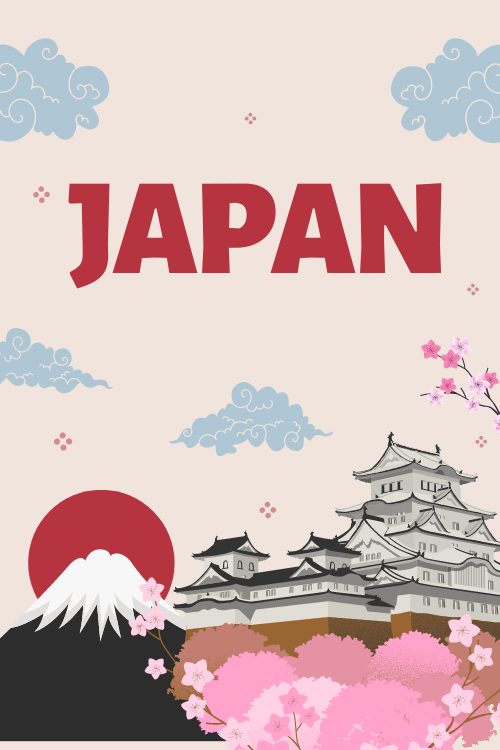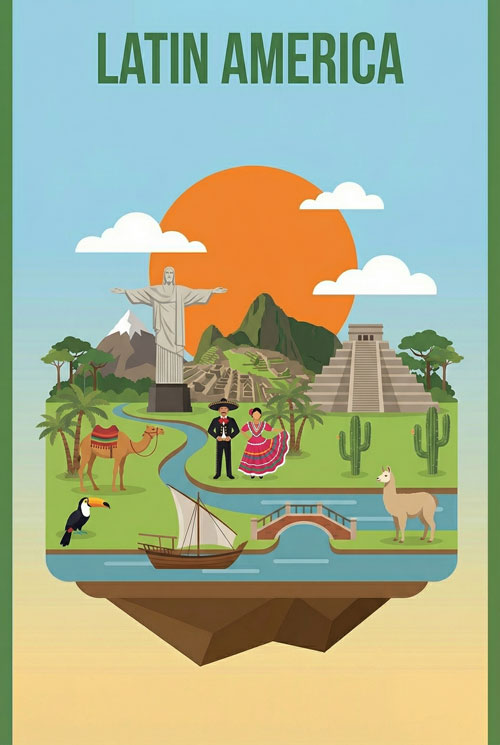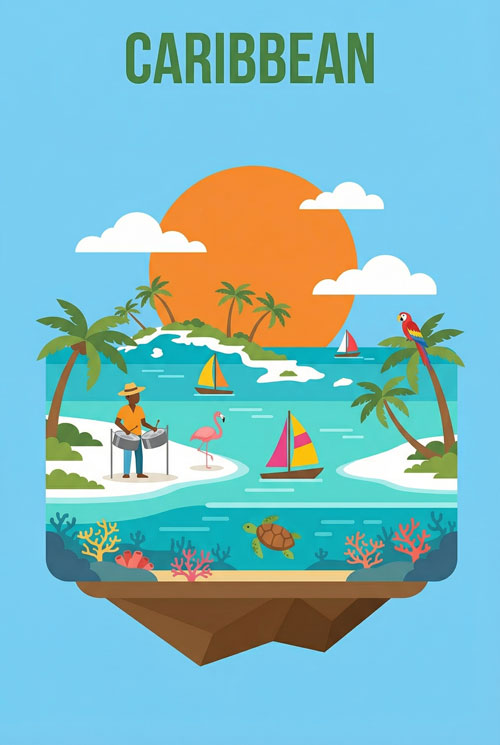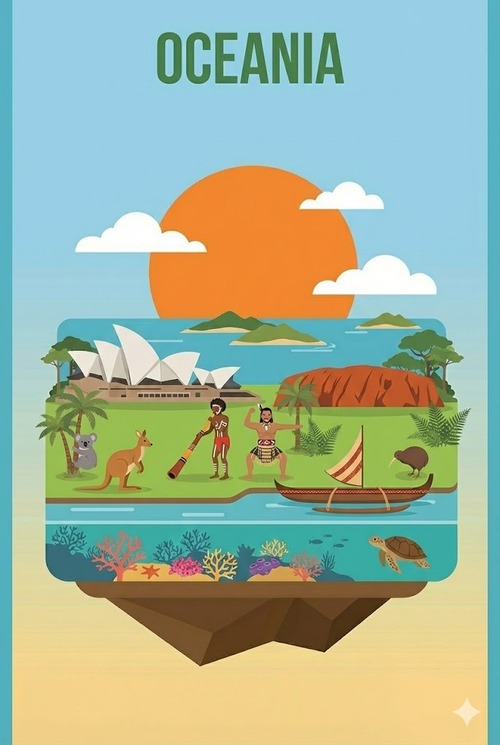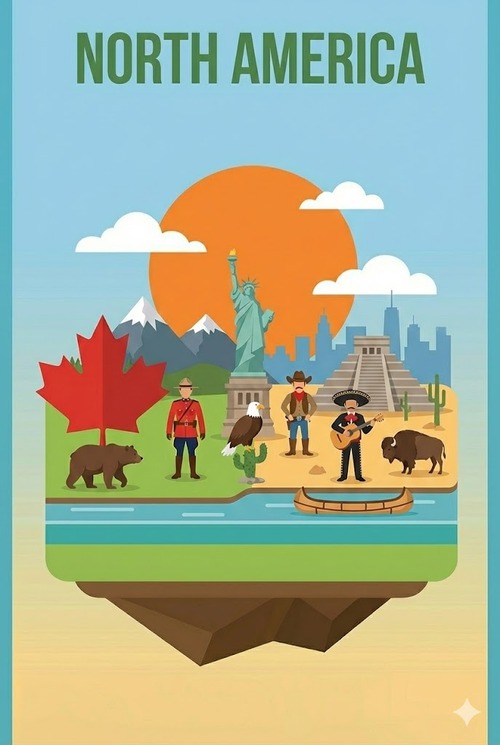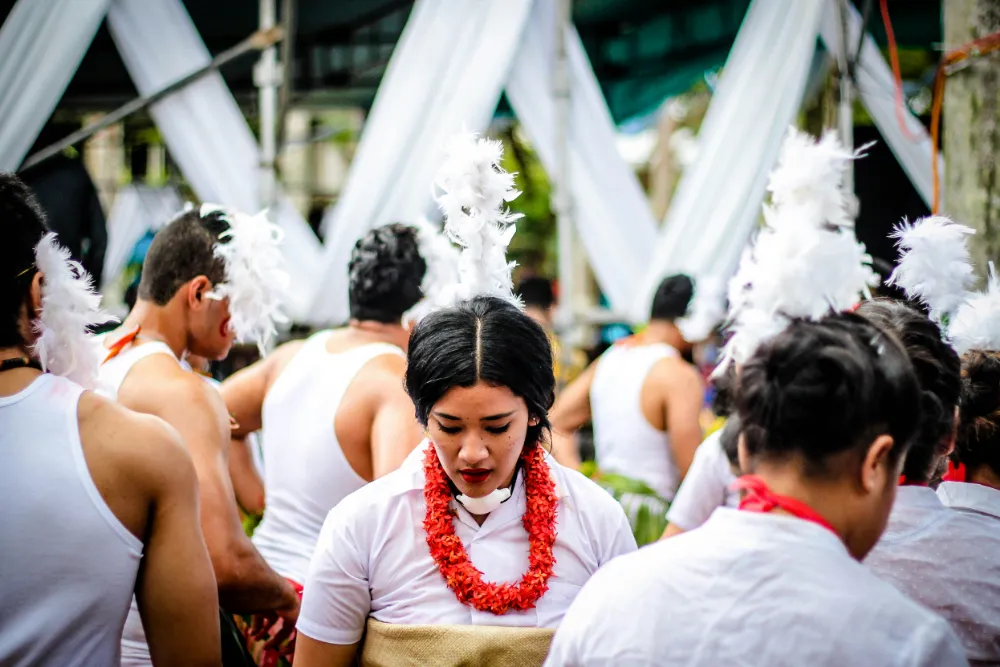eSIM Tonga
The Best Time to Visit Tonga: Everything You Need To Know
This guide is designed to be your compass. We’ll navigate through Tonga’s distinct seasons, explore its vibrant cultural calendar, and break down the ideal times for every type of activity. By the end, you’ll know exactly when to book your flight to this unforgettable kingdom.
Tonga At-a-Glance: The Best Times to Go
For those who want the key information right away, here’s a quick cheat sheet to help you pinpoint the perfect time for your Tongan adventure.
| Best Time For… | Recommended Months | Why It’s Great |
| Overall Great Trip | May, June & October | A perfect balance of fantastic weather, fewer crowds, and more affordable prices before and after the peak season rush. |
| Sun & Ideal Weather | July – September | The heart of the dry season, offering the most sunshine, lowest rainfall, and comfortable temperatures with low humidity. |
| Swimming with Whales | August & September | The absolute peak of the whale season, with the highest concentration of mothers and playful newborn calves, offering unforgettable encounters. |
| Budget Travelers | February – April | The core of the low season, when you’ll find the lowest prices on flights and accommodation, though it’s also the wettest time of year. |
| Avoiding Crowds | January – May | The low and shoulder seasons offer a much quieter experience, allowing for spontaneous travel and the feeling of having the islands to yourself. |
| Diving & Snorkeling | June – October | The dry season brings the best underwater visibility, often exceeding 30 meters (100 feet), making it ideal for exploring Tonga’s vibrant reefs and caves. |
The Best Time to Visit Tonga
A visual guide to planning your perfect trip to the ‘Friendly Islands’ based on weather, whales, and prices.
Best Weather
July – Sep
Peak dry season with maximum sunshine and low humidity.
Whale Watching
Aug & Sep
Highest concentration of mother humpbacks and newborn calves.
Budget Travel
Feb – Apr
Lowest prices on flights and stays during the wet season.
Avoiding Crowds
Jan – May
Enjoy the quietest beaches and a truly relaxed atmosphere.
Tonga’s Yearly Climate
Visualize Tonga’s two distinct seasons. The dry season (May-Oct) offers sunny days, while the wet season (Nov-Apr) brings lush landscapes and warmer, more humid conditions.
Whale Watching Hotspots
The whale season runs from June to October, but the peak times vary by island group. Vava’u is the busiest hub, while Ha’apai offers a more intimate experience.
Activity Planner
Tonga is an adventurer’s paradise. The dry season’s clear waters are perfect for diving, while trade winds create ideal sailing conditions.
Diving & Snorkeling
Best Months: June – October
Exceptional water visibility, often exceeding 30 meters, for exploring reefs and caves.
Sailing & Kitesurfing
Best Months: May – October
Consistent and strong southeast trade winds provide perfect conditions.
Surfing
Year-Round
North Pacific swells from Nov-Mar; Southern Hemisphere swells from Apr-Oct.

Stay Connected Instantly in Tonga
Don’t waste time hunting for local SIMs or risk expensive roaming fees. Get online the moment you land to navigate, book rides, and share your adventure.
Download a data plan before you go and activate it on arrival. Simple, fast, and reliable.
A Deep Dive into Tonga’s Climate: A Season-by-Season Breakdown
Tonga’s tropical climate is beautifully simple, divided into two distinct seasons: a dry season from May to October and a wet season from November to April.
However, within these broad strokes lie important nuances in weather, humidity, and even regional variations. The northern island groups like Vava’u, for instance, tend to be slightly warmer and receive more rainfall than the southern islands of Tongatapu and ‘Eua. Understanding these patterns is the key to planning a flawless trip.
The Dry Season (May – October): Sun, Whales, and Perfect Breezes
Often called Tonga’s “winter,” the dry season is the most popular time for travelers, and for good reason. It’s characterized by comfortably warm temperatures, significantly lower humidity, and much less rain. During these months, consistent southeast trade winds provide a refreshing breeze, creating perfect conditions for sailing, kiteboarding, and simply relaxing on the beach without the stickiness of the summer months. This is prime time in Tonga.
May & June (The Shoulder Season Sweet Spot)
As Tonga transitions out of the wet season, May and June emerge as a golden window for travelers. The heavy rains subside, humidity drops, and the landscape is still incredibly lush and green. Temperatures are warm and sunny but not overly humid, creating ideal conditions for exploring. Many of the seasonal resorts, particularly in the outer islands, reopen their doors in May after closing for the wet season, giving you more accommodation options.
Crucially, these months precede the main tourist rush of July and August. This means you can often find excellent deals on flights and hotels while enjoying some of the year’s best weather. It’s also a fantastic time for cultural immersion. The ‘Eua Tourism Festival is held in the second week of May, celebrating the island’s unique heritage, while the Ha’apai Tourism Festival takes over the second week of June, showcasing the island group’s culinary and cultural traditions.
July – September (Prime Time & Peak Season)
It’s impossible to talk about Tonga’s high season without putting one magnificent creature at the center of the story: the humpback whale. This annual migration doesn’t just influence travel trends; it defines them. From July to October, hundreds of humpback whales arrive from Antarctica to mate and give birth in Tonga’s sheltered waters, and around 75% of all international visitors come during this period specifically to witness it.
This influx of whale-watchers, combined with the winter school holidays in Australia and New Zealand (primarily July), makes this the busiest and most expensive time to visit Tonga. Accommodation, especially in the whale-watching hubs of Vava’u and Ha’apai, can be booked out months, or even years, in advance.
The trade-off for the higher prices and crowds is the weather, which is nothing short of spectacular. These months are the driest and sunniest of the year, with average daily temperatures hovering around a pleasant 21-25°C (70-77°F). It’s the perfect climate for any outdoor activity.
This period is also alive with festivals. The Heilala Festival, Tonga’s largest national celebration, kicks off in early July to celebrate the King’s birthday and the flowering of the national flower, the heilala. The week-long festival is a vibrant display of Tongan culture, with parades, beauty pageants, and traditional dance and music competitions. In September, sailors flock to the Vava’u island group for the Vava’u Blue Water Festival, a highlight of the Pacific cruising calendar.
If swimming with whales is your number one priority, this is undeniably the time to come. However, if it’s not the main focus of your trip, you can enjoy nearly identical weather in the shoulder months of May, June, or October with far fewer people and for a fraction of the cost.
October (The Calm After the Rush)
October is a fantastic month that offers the best of both worlds. The beautiful, dry weather continues, but the peak season crowds have begun to dissipate as the whale migration winds down. This is your last chance to join a whale swimming tour, and operators may offer better deals as the season closes. With calmer seas and excellent visibility, it remains a prime month for diving, snorkeling, sailing, fishing, and hiking.
The Wet Season (November – April): Lush Landscapes and Local Life
Also known as the “summer” or “low season,” this period brings hotter temperatures, higher humidity, and, as the name suggests, more rain. From January to March, rainfall can exceed 250 mm (about 10 inches) per month. However, what many travelers don’t realize is that the “wet season” doesn’t mean constant downpours. The rain often arrives in short, intense showers, frequently in the afternoon, with long stretches of sunshine in between.
For travelers who don’t mind the occasional shower, this season offers huge rewards: the islands are at their most verdant and beautiful, tourist numbers are at their lowest, and prices for flights and accommodation hit rock bottom. The one major consideration is that this is also the official tropical cyclone season.
November & December (Festive but Humid)
November acts as a bridge between seasons. It’s officially the start of the wet season, but the weather is often still quite pleasant, with many dry and sunny days remaining. It’s a great shoulder month to catch the tail end of the good weather before the humidity really kicks in.
December is a unique month. While the weather becomes progressively wetter, it’s considered a high season for a different reason: many Tongans living abroad return home to celebrate Christmas with their families. This influx can put pressure on domestic flights and other tourism services, so it’s wise to book ahead if traveling during the holidays. The festive season is marked by several public holidays, including Tonga Day (November 4), King Tupou I Day (December 4), Christmas Day, and Boxing Day, offering a wonderful glimpse into local celebrations.
January – March (The Quietest, Wettest & Cheapest)
These three months represent the heart of the wet season and the absolute low point for tourism. This is when you’ll experience the highest temperatures, the most oppressive humidity, and the heaviest rainfall. If you’re looking for a bargain, this is it. International airfares can be significantly cheaper, especially around February and March, and you’ll find the best deals on accommodation.
This is the perfect time for travelers seeking true solitude. With so few tourists around, you can be more spontaneous with your plans, as there’s little need to book accommodation or tours far in advance. You might just find you have a pristine beach or a stunning natural cave all to yourself. The main drawback, of course, is the weather, and specifically, the risk of a tropical cyclone.
April (The Transition to Dry)
April marks a welcome shift as the country begins its transition back to the dry season. Rainfall starts to decrease, and the humidity becomes less intense. While the official cyclone season runs until the end of the month, the risk diminishes as the days go on. This makes April another excellent shoulder month for budget-savvy travelers who want to take advantage of low-season prices while enjoying improving weather. The Easter holidays, with Good Friday and Easter Monday being public holidays in Tonga, often fall in April, bringing with them special church services and family celebrations.
How to Travel Safely During Cyclone Season (November – April)
The term “cyclone season” can sound intimidating, but it’s important to understand the context. On average, Tonga is affected by one or two tropical cyclones per season, so the probability of your specific vacation being impacted is relatively low. However, the risk is real and requires preparation. Traveling during this time involves a clear risk-versus-reward calculation. The reward is a trip at a fraction of the peak season cost; the risk is a potential disruption.
By taking a few smart precautions, you can travel with greater peace of mind:
- Monitor the Weather: Keep a close eye on forecasts from official sources like the Tonga Meteorological Services and the World Meteorological Organization. Local radio stations also provide crucial updates.
- Stay Flexible: This is not the time for a rigid, tightly-packed itinerary. Be prepared for flight schedules to change or ferry services to be canceled on short notice due to bad weather.
- Buy Comprehensive Travel Insurance: This is non-negotiable. Ensure your policy covers trip cancellations or interruptions due to severe weather events.
- Follow Local Advice: Always heed the instructions of local authorities. If an evacuation is ordered, comply immediately. Hotels may require guests in coastal areas to move to safer inland locations.
- Have an Emergency Plan: Know the emergency contact numbers for your airline and accommodation. It’s also wise to have a small emergency kit with essentials like a flashlight, first-aid supplies, and charged power banks.
Planning Your Perfect Trip: The Best of Tonga by Travel Style
Now that you understand the rhythm of Tonga’s seasons, let’s tailor that knowledge to your specific travel style. Whether you’re an adrenaline junkie, a family with young children, or a traveler on a tight budget, there’s a perfect time for you to visit.
For the Whale Enthusiast: A Guide to Swimming with Giants
For many, this is the ultimate Tongan experience. Tonga is one of the few places on Earth where you can legally and ethically swim with humpback whales, and it’s an encounter that will stay with you forever.
- When to Go: The official whale season runs from June to late October or even early November, but the timing varies slightly between the island groups.
- Tongatapu: Mid-June to the end of October.
- ‘Eua: Early June to early November (the longest season).
- Ha’apai & Vava’u: Mid-July to mid-October.
- The Absolute Best Time: To maximize your chances of incredible, up-close encounters, plan your trip for August and September. These months are consistently cited as the pinnacle of the season, when the water is teeming with mothers and their curious, playful newborn calves.
- Where to Go: You can swim with whales in four main areas, each offering a slightly different experience.
- Vava’u: The most popular and developed hub for whale watching, with the most tour operators. The islands create a protected lagoon with excellent water visibility.
- Ha’apai: Offers a more intimate and less crowded experience, as there are fewer licensed operators. Many travelers feel this leads to more personal and respectful encounters.
- ‘Eua: Known for its dramatic, rugged scenery. With only two operators, you’re guaranteed a non-crowded tour. The whales congregate in high numbers here, and you can often watch them from the cliffs.
- What to Expect: It’s important to manage expectations. A whale swim tour is an adventure, not a zoo. Some days are magical, with curious calves approaching swimmers for encounters that can last up to the regulated 90-minute limit. Other days might involve more “surface action”—watching spectacular breaches and tail slaps from the boat. Be prepared for open ocean conditions. The waves can be rough, and you’ll be getting in and out of the boat frequently. This activity is best suited for strong, confident swimmers.
For the Budget-Conscious Traveler: Paradise on a Shoestring
Tonga can be an incredibly affordable destination if you travel at the right time.
- When to Go: The cheapest time to visit Tonga is during the heart of the low season, from February to April.
- Cost Savings: During these months, you can find significant discounts on both international and domestic flights. Accommodations also offer low-season rates, with some resorts running deals like “stay for 7 nights, pay for 5”. A daily budget for a backpacker could be around TOP$150 (approx. 65USD),whileamid−rangetravelermightspendaroundTOP295 (approx. $125 USD), not including accommodation.
- Managing the Trade-Offs: The major trade-off for these low prices is the weather. You will encounter rain and high humidity, and you’ll be traveling during the cyclone season. However, by following the safety tips mentioned earlier and packing a good rain jacket, you can still have an amazing trip. Remember, even in the wettest months, the rain often comes in short bursts, with plenty of sunshine to enjoy the empty beaches.
For Families: Creating Unforgettable Memories
Tonga is a fantastic natural playground for families, offering a genuine cultural experience away from commercialized kids’ clubs. Planning a family trip involves balancing good weather with school holiday schedules.
- When to Go: The peak season of July and August aligns with the main winter school holidays for Australia and New Zealand, but this is also the most crowded and expensive time. A better option for families is to target the shoulder season school holidays in April, September, and October. During these times, you’ll find a great compromise of pleasant weather, fewer crowds, and more reasonable prices.
- 2025 Australian & New Zealand School Holidays: Most of Tonga’s family visitors come from Australia and New Zealand. Planning around these holiday dates is key.
| Holiday Period | Australian States (Approx. Dates) | New Zealand (Approx. Dates) |
| Autumn (Easter) | Saturday, April 5 to Monday, April 21 | Saturday, April 12 to Sunday, April 27 |
| Winter | Saturday, June 28 to Sunday, July 20 | Saturday, June 28 to Sunday, July 13 |
| Spring | Saturday, September 20 to Monday, October 6 | Saturday, September 20 to Sunday, October 5 |
- Family-Friendly Activities: Tonga is packed with activities that kids of all ages will love. Spend a day on an island-hopping tour to a place like Pangaimotu for swimming and snorkeling in calm, sheltered waters. Explore the magical freshwater pool inside ‘Anahulu Cave, watch the impressive Mapu ‘a Vaea Blowholes, and let the kids pick out handmade souvenirs at the bustling Talamahu Market in Nuku’alofa. For older kids who are strong swimmers, a whale-watching tour can be the thrill of a lifetime.
For the Ocean Adventurer: Diving, Sailing, and Surfing
Tonga’s pristine marine environment is a paradise for water sports enthusiasts.
- Diving & Snorkeling: The best visibility is found during the dry season, from June to October. With less rainfall, there is less runoff from the land, resulting in crystal-clear water where visibility can often reach an incredible 25 to 40 meters (82 to 131 feet). This is the perfect time to explore Tonga’s spectacular underwater caves, volcanic tunnels, and vibrant hard coral reefs.
- Sailing & Kitesurfing: Plan your trip for the dry season, from May to October. During these months, the southeast trade winds are at their most consistent and strong, providing ideal conditions for sailing and kiteboarding, especially in the island groups of Vava’u and Ha’apai.
- Surfing: Tonga offers world-class surfing year-round, but the type of swell changes with the seasons. From November to March, you can catch the North Pacific winter swells. From April to October, the Southern Hemisphere provides the powerful winter swells. Most breaks are over shallow coral reefs, so they are best suited for intermediate to advanced surfers.
Tonga’s Cultural Heartbeat: A 2025 Events & Festival Calendar
Timing your visit to coincide with a national festival or public holiday is a fantastic way to witness Tongan culture come alive. These events are vibrant, joyous occasions filled with traditional dance, music, and food.
It’s also important to be aware of public holidays, as most businesses, banks, and government services will be closed.
| Event / Holiday | 2025 Date / Timeframe | What to Expect |
| New Year’s Day | January 1 | Public holiday. A quiet day of rest and family gatherings after celebrations. |
| Good Friday | April 18 | Public holiday. A significant religious day with special church services. |
| Easter Monday | April 21 | Public holiday. The conclusion of Easter weekend celebrations. |
| ANZAC Day | April 25 | Public holiday commemorating Australian and New Zealand armed forces. |
| ‘Eua Tourism Festival | Second week of May | A week-long celebration of ‘Eua’s unique culture and natural heritage. |
| Emancipation Day | June 2 (Observed) | Public holiday celebrating the abolition of serfdom in 1862. |
| Ha’apai Tourism Festival | Second week of June | Showcases the culinary and cultural delights of the Ha’apai island group. |
| King Tupou VI’s Birthday | July 4 | Public holiday celebrating the reigning monarch’s birthday. |
| Heilala Festival | Early July | Tonga’s largest festival, with a week of parades, cultural competitions, and celebration. |
| Birthday of Crown Prince | September 17 | Public holiday celebrating the heir to the throne. |
| Vava’u Blue Water Festival | Late September | A week-long festival and regatta for sailors and cruisers in the Vava’u islands. |
| White Sunday | Second Sunday of October | A special day celebrating children, who are honored in church and at family feasts. |
| Tonga National Day | November 3 (Observed) | Public holiday celebrating Tonga’s constitution. |
| King Tupou I Day | December 8 (Observed) | Public holiday commemorating the first king of modern Tonga. |
| Christmas Day | December 25 | Public holiday. A deeply religious and family-oriented day. |
| Boxing Day | December 26 | Public holiday. A day of rest and continued family gatherings. |
Stay Connected in Tonga with an eSIM from eSIM4.com
In today’s world, having reliable internet access from the moment you land is more than a convenience—it’s essential. You’ll want to look up your hotel’s location, book a ride, check restaurant reviews, or simply let family know you’ve arrived safely. But getting connected in a new country can be a major headache.
You could risk activating your home carrier’s international roaming, but this often leads to “bill shock” from outrageously expensive per-megabyte data charges. The other option is to hunt down a local physical SIM card. In Tonga, this means finding a Digicel or TCC/UCall store at the airport or in town, which often have limited hours.
You’ll need to make sure your phone is unlocked and compatible with local GSM frequencies, then go through the multi-step process of buying the SIM, purchasing a separate top-up voucher, and dialing special codes to activate a data plan. It can be a confusing and time-consuming hassle when all you want to do is start your vacation.
There’s a much better way. An eSIM is the perfect modern solution for the savvy traveler. It’s a digital SIM card that you can download and install on your compatible device before you even leave home.
With an eSIM from eSIM4.com, you can download a data plan for Tonga before you even leave home and activate it the moment you land. No more bill shock, no more airport SIM queues. You get affordable, reliable data right away, letting you navigate the ‘Friendly Islands’ with ease and confidence.
Check out eSIM4.com for affordable, reliable data plans for your trip to Tonga.
Final Thoughts & Essential Tonga Travel Tips
Tonga is a destination that rewards the curious traveler with experiences that are both profound and beautifully simple. From the humbling presence of a humpback whale to the warm smile of a local villager, the moments you have here will be unforgettable. By choosing the time of year that best aligns with your dreams, you’re setting yourself up for the trip of a lifetime.
As you finalize your plans, keep these essential tips in mind for a smooth and respectful journey:
- Respect the Sabbath: Tonga is a deeply religious country, and Sunday is a constitutionally mandated day of rest. Almost all businesses, shops, and restaurants are closed. Activities like swimming, sports, and doing laundry are considered disrespectful outside of designated tourist resorts. Plan for a quiet day of reading or relaxing at your hotel.
- Dress Modestly: When you are outside of your resort, it is important to dress conservatively as a sign of respect. This means covering your shoulders and knees. A sarong (or lavalava) is an incredibly useful item to have for covering up swimwear when walking back from the beach.
- Bring Cash (Tongan Pa’anga – TOP): While major hotels and some restaurants in the capital, Nuku’alofa, accept credit cards, Tonga is largely a cash-based society. ATMs are available on the main island of Tongatapu and in Vava’u, but they are scarce or non-existent on the outer islands. Be sure to withdraw enough cash to cover your expenses, especially when venturing off the beaten path.
- Pack Smart: For clothing, think lightweight, breathable fabrics like cotton or linen. Even in the dry season, evenings can be cool, especially on the water, so a light jacket or fleece is a good idea. For the wet season, a reliable rain jacket is a must. Don’t forget reef-safe sunscreen, a wide-brimmed hat, sunglasses, and a good insect repellent.
- Embrace “Island Time”: Life in Tonga moves at a much more relaxed pace. Don’t expect things to run on a strict schedule. Ferries can be delayed, and appointments might not start exactly on time. Instead of getting frustrated, embrace it as part of the charm. Slow down, breathe deep, and enjoy the unhurried rhythm of the islands.
